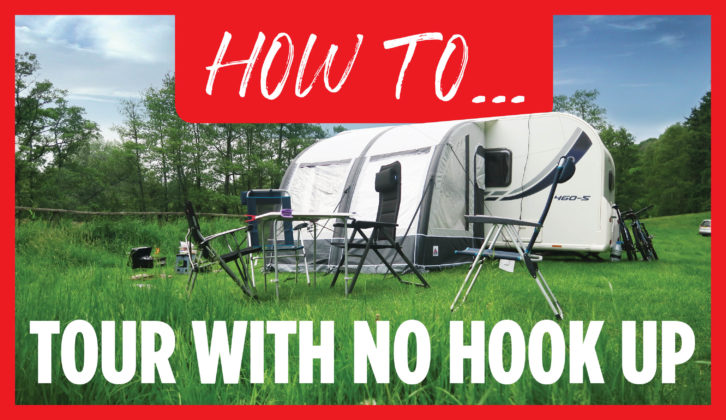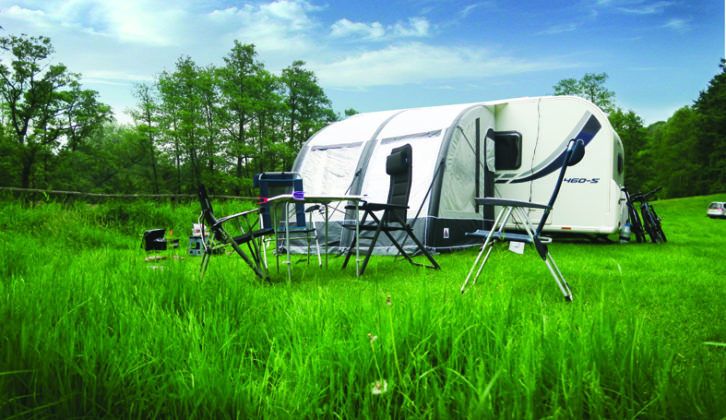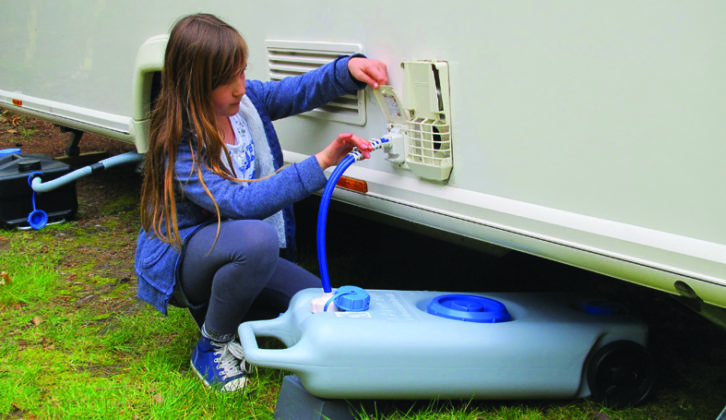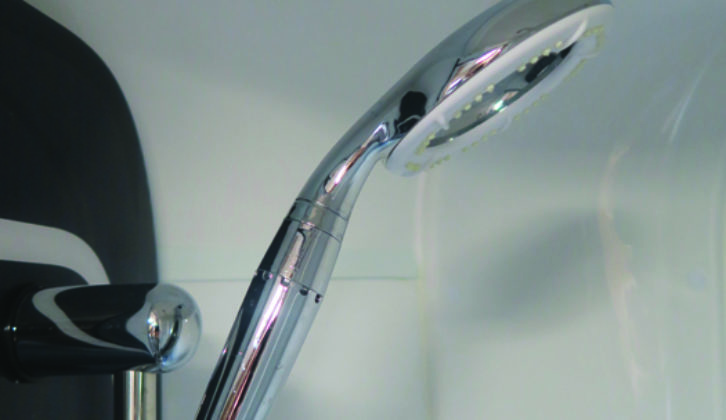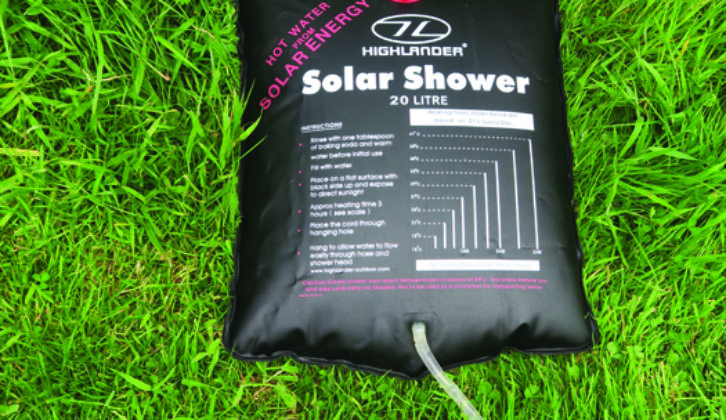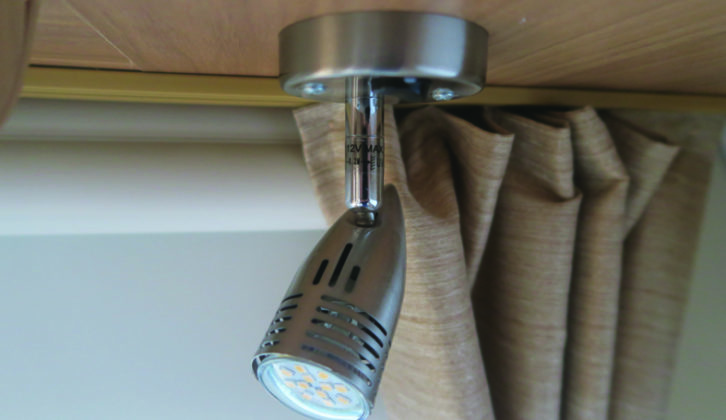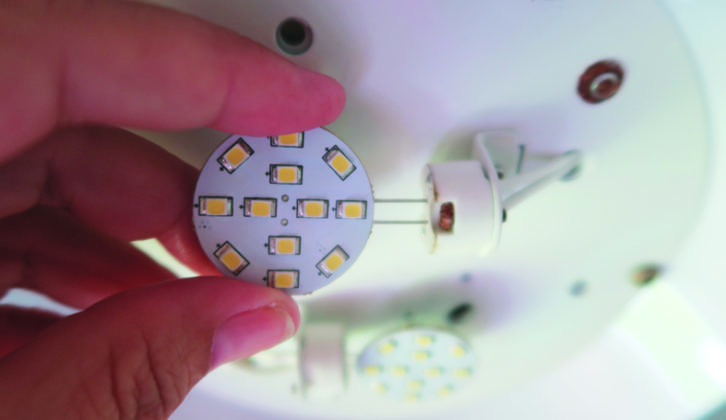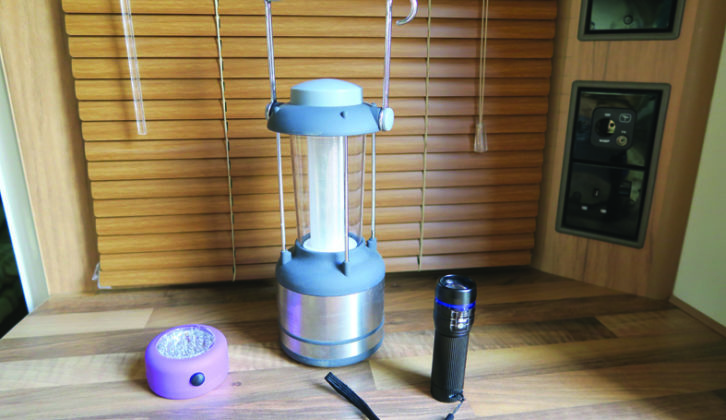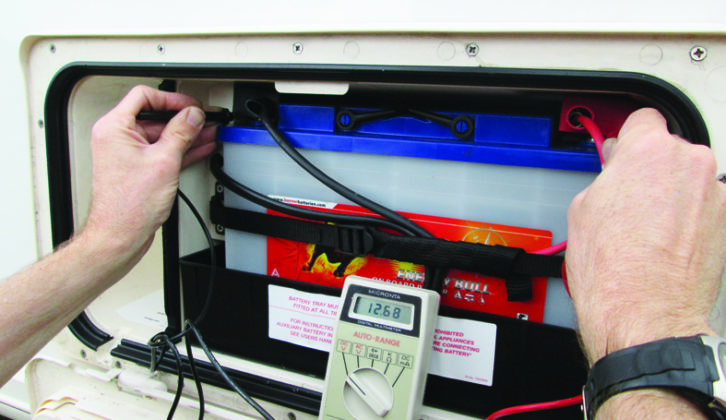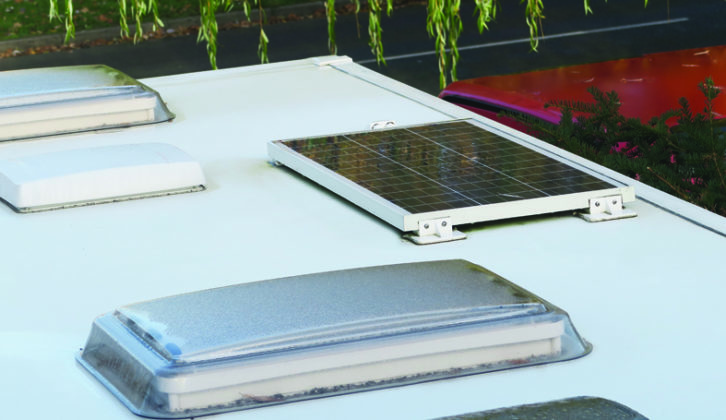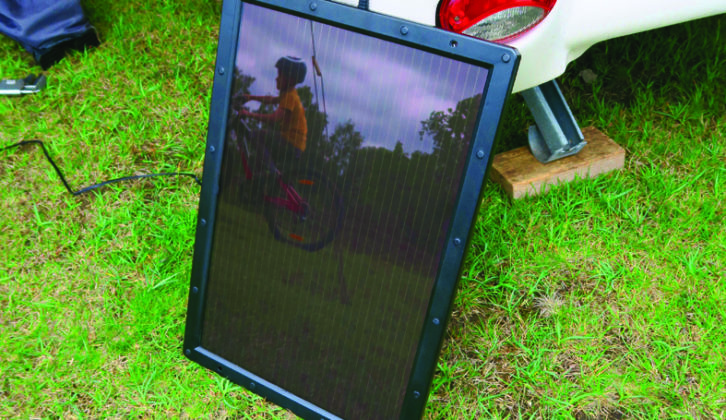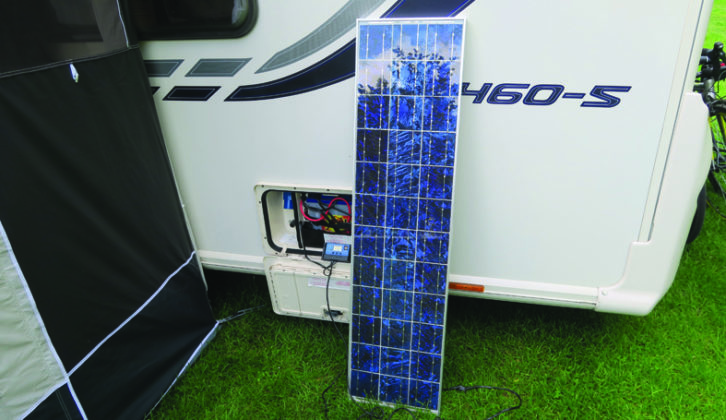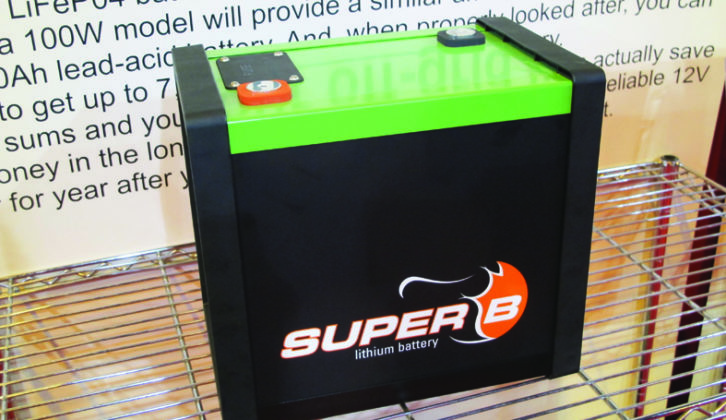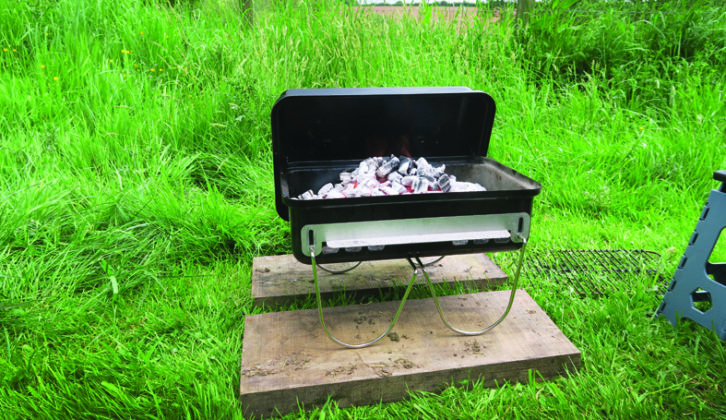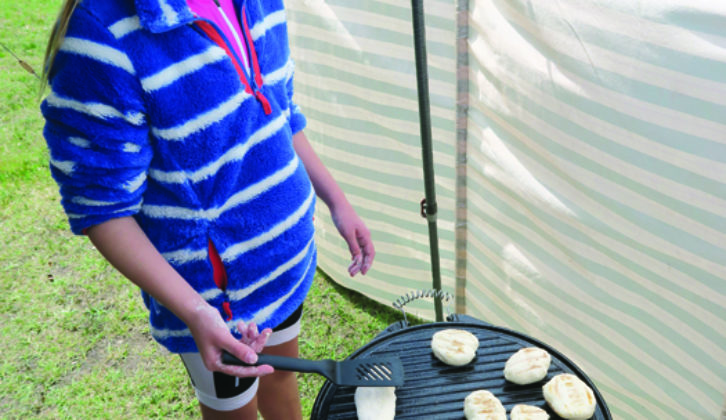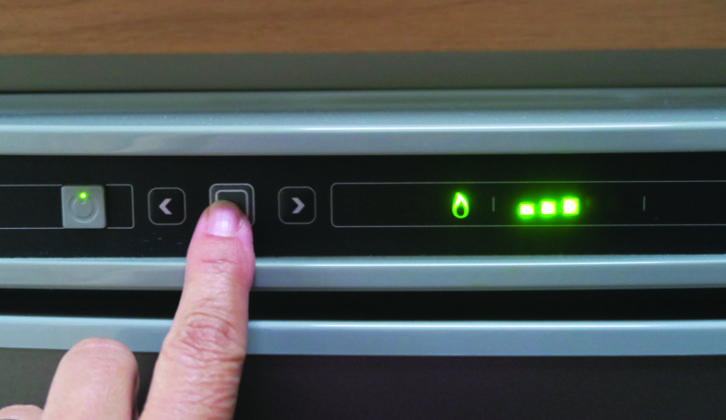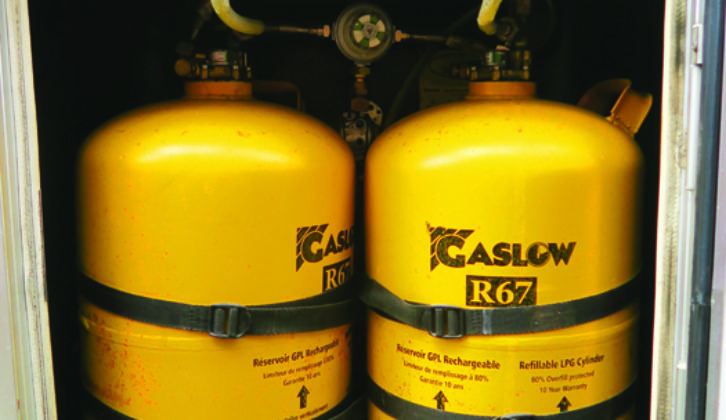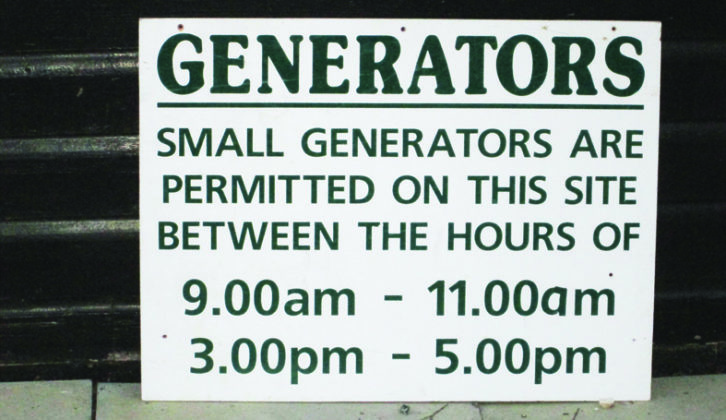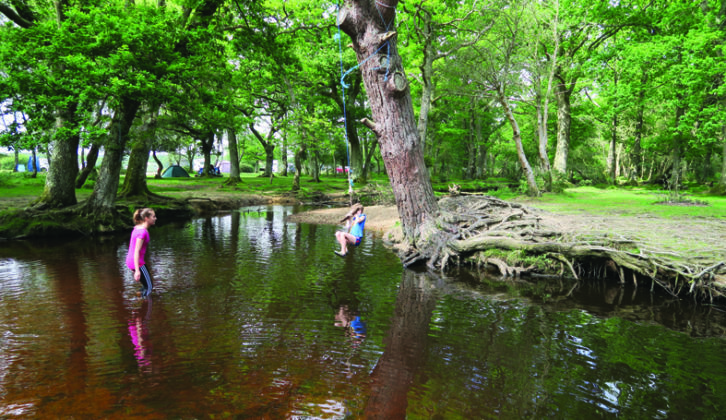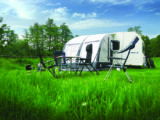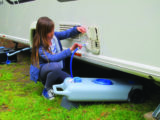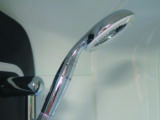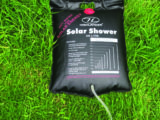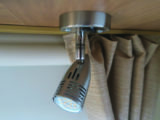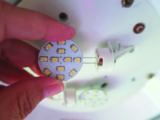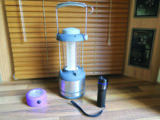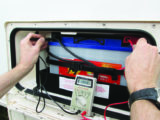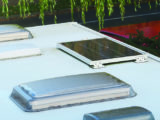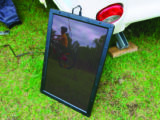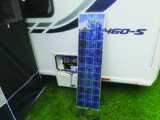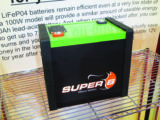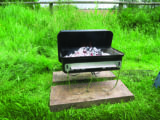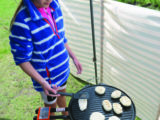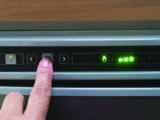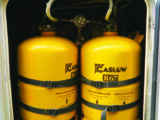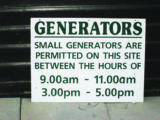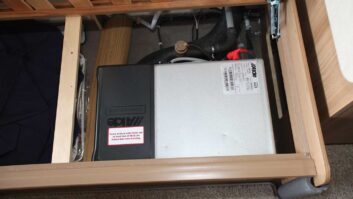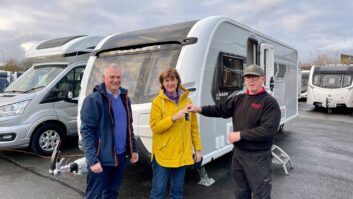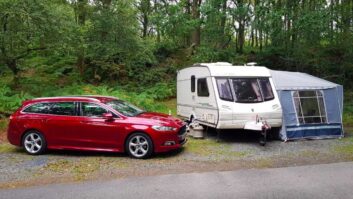Most caravanners prefer the reassurance and comfort of electrical hook-up when they pitch their van, but others enjoy going back to basics.
‘Why do it?’ I hear you cry. The main reason is the cost. Sites without hook-up and washrooms can cost as little as £6 per night, as opposed to the average of £15 per night on hook-up campsites.
Pitching at these places can be more relaxed, allowing you to position your van anywhere on site and in any direction. It is far more pleasing to have a view of the open countryside, rather than the interior of someone else’s leisure vehicle.
Off-grid camping can also take you to the more remote corners of the country, with spectacular views. What’s not to love? But what do you need to know, to make the most of this enjoyable experience?
Washrooms
Generally, caravanners prefer to book sites with washroom facilities, but there is, of course, a washroom in most vans.
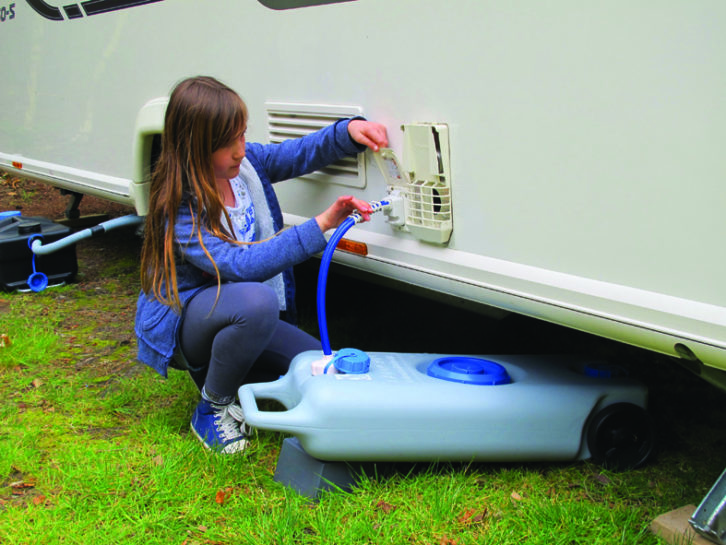
It may be a hassle filling up the fresh-water container and emptying the waste regularly, but as a family of four, we all help out with these tasks.
Running the water-heater on gas ensures that you have a a hot shower, but make sure there is plenty of water in the tank, otherwise you might get a bit of a shock if you run out.
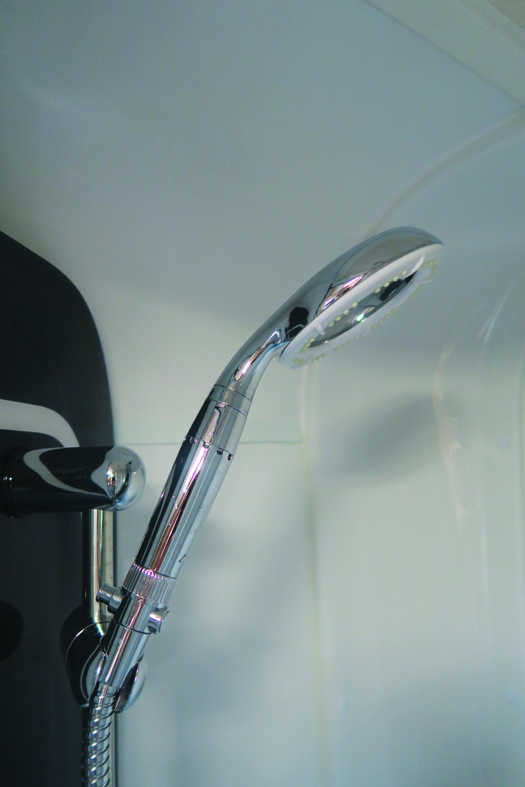
Ecocamel shower heads are a great way to save water and energy. Air is drawn in through holes at the base of the handle and this mixture of water and air causes turbulence, which helps to raise the water pressure. Less water is drawn from the tank, which means fewer refills. A shut-off valve allows you to pause the flow of water from the shower head at any time.
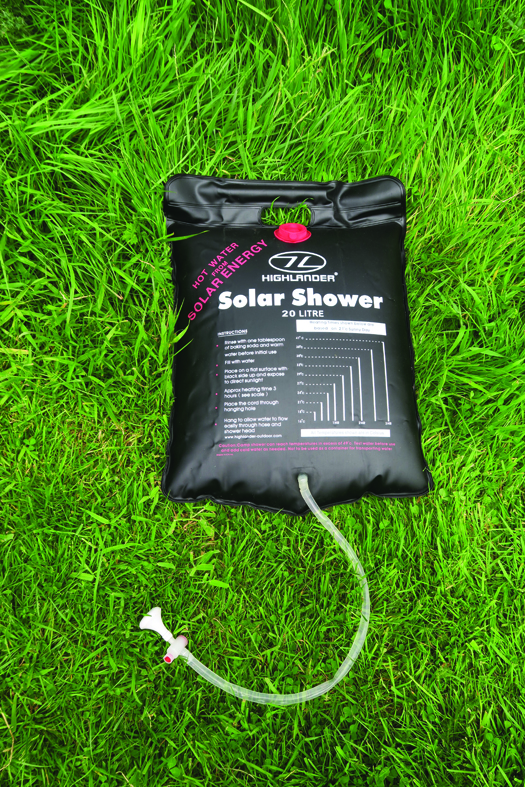
As back up, it’s a good idea to have a solar shower on standby, to get the worst of the mud off the children!
Lights
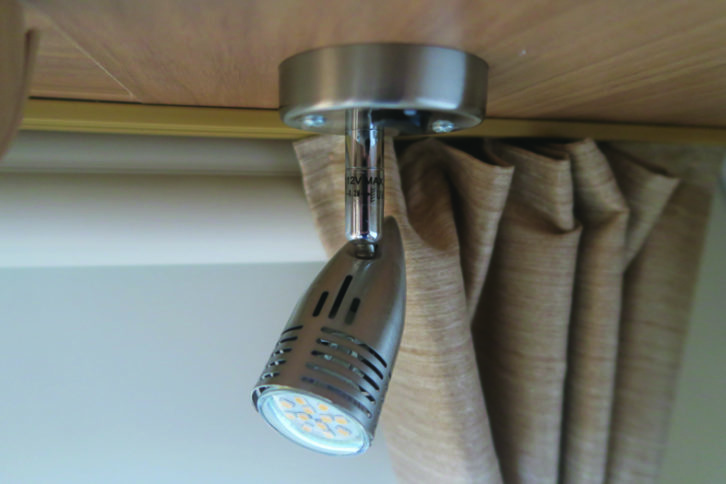
Most modern caravans have LED lights, which have a low power consumption. It is relatively simple to upgrade your lighting to LEDs and this is definitely worthwhile, as they have a long lifespan, produce no heat and are very robust. This can be as simple as changing the bulbs.
Consider the time of year when you plan to camp off-grid. For example, touring in June means it doesn’t get dark until about 9.30pm, so you won’t need to keep the lights on for long periods of time.
However, you should always travel with some torches or battery-operated LED lights, just in case.
Leisure battery
The most crucial factor for any successful off-grid adventure is a high-quality, fully charged leisure battery, usually of at least 100Ah capacity.
I would always recommend purchasing a leisure battery that is part of the NCC Verified Battery Scheme. Believe it or not, there are quite a few rogue car batteries out there on the market, masquerading as leisure batteries.
All NCC-approved leisure batteries are tested for their performance and categorised accordingly into one of these three categories:
- Category A: These batteries are designed for people who frequently use their caravan without electrical hook-up.
- Category B: For caravanners who regularly use sites with electrical hook-up faciltiies, but require a greater battery capacity to run items such as motor movers.
- Category C: For those who only require basic operation of their habitiation equipment for short periods away from electrical hook-up.
Now that you have purchased the right leisure battery for the job, it is imperative to maintain that battery in tiptop condition. Unlike your car battery, when a leisure battery becomes fully discharged, it is impossible to recharge it.
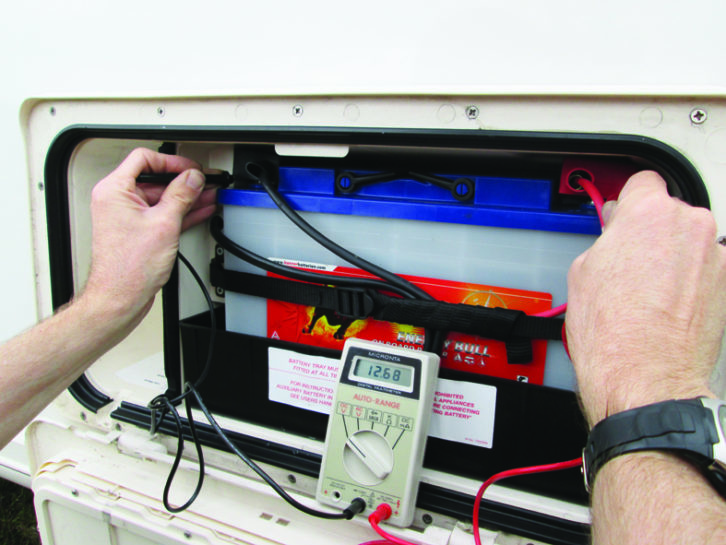
Using a voltmeter, a constant record can be kept of the charge status. To gain an accurate result, turn off all of your 12V appliances before taking the reading. Here is a rough guide to the charge status of your leisure battery:
Voltmeter Reading = Approx charge state
- 12.7-12.8V = 100%
- 12.5V = 75%
- 12.4V = 50%
- 12.2V = 25%
- 12V or under = Discharged
It’s also worth noting that performance between charges deteriorates as the battery gets older, and the colder it is, the harder the battery works.
Another great way to top up your leisure battery while you are off-grid is to use a solar panel. Some modern caravans have them pre-installed.
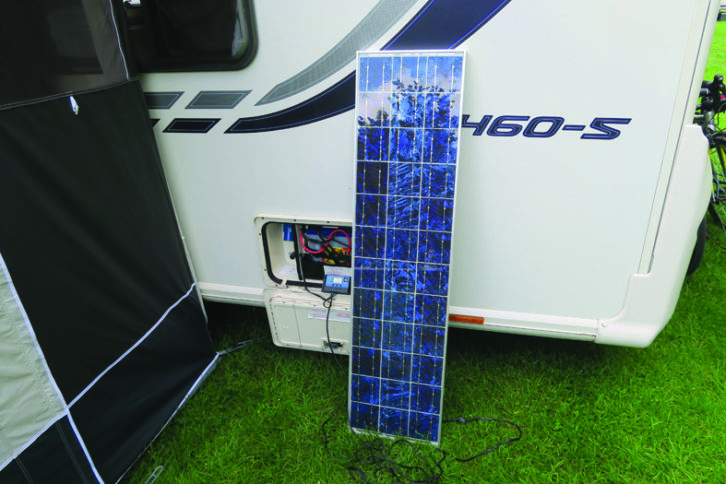
If you don’t have one, then you might consider investing in Milenco Solar by Optimate, an efficient solar pulse charge system that maintains the leisure battery.
Alternatively, connecting a 50W solar panel and charge controller to the leisure battery works just as well.
Obviously, you are reliant on bright, sunny days, and be mindful that daylight hours are shorter in the winter.
Another advantage if you use a mobile solar panel is that you can move it around to make the most of the sun.
If cost is not a factor, lithium batteries are ideal for those who like to go off-grid. These are lightweight, compact and powerful. Some lithium batteries come with Bluetooth connectivity, so you can check the status of the battery on your smartphone.
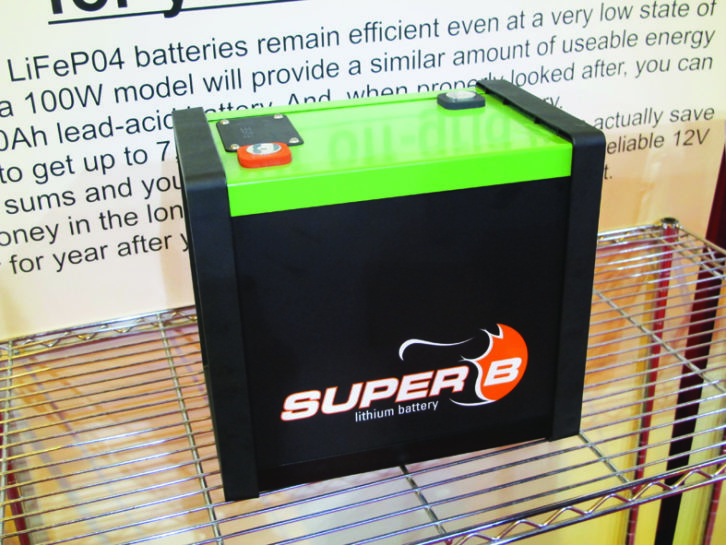
The claimed performance levels for lithium batteries are excellent, although recycling them can be tricky.
Gas
Most appliances in your caravan run off gas (fridge, oven/grill, hob, heating), so make sure you pack a full gas cylinder. Don’t forget to pack a kettle that can be used on a gas hob.
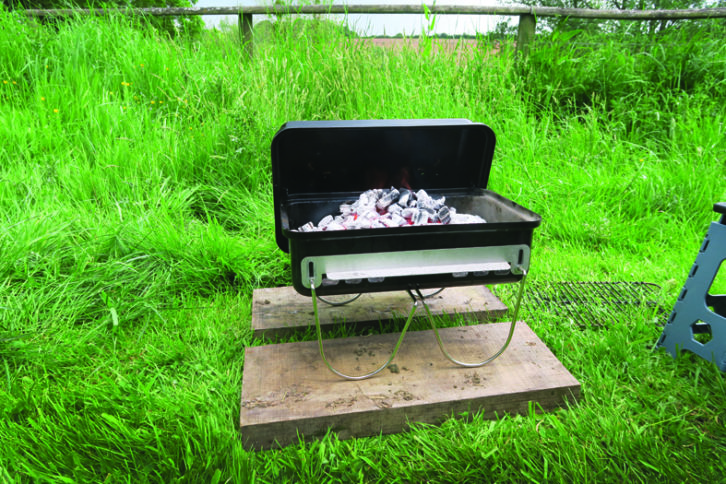
Consider other options for cooking, such as barbecues – very popular with our family – external gas cookers, for example by CADAC, or other camping stoves.
Switch on the fridge using the gas option when you arrive on site. Gas is an efficient way to cool your fridge, but to give it a helping hand, it’s worth pre-cooling the fridge before you leave on your travels.
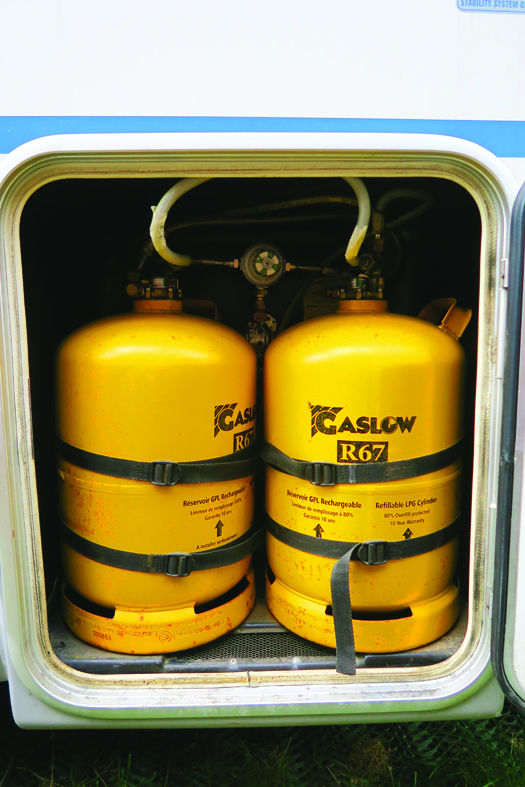
If your van runs on Gaslow, make sure that the refillable cylinders are topped up at an LPG service station.
Portable generators
Portable generators are a great alternative power source when you are camping off-grid, but they can be quite noisy, so if you use one, it is important to consider your neighbours.
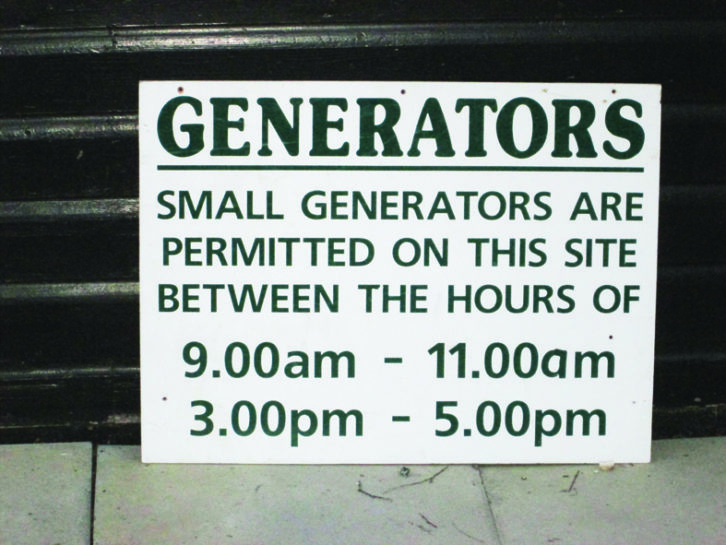
Before you book a site, check that it accepts generators. Some might have restrictions about when they can be used.
Generators are available in a wide range of outputs, but for caravanning, aim for one rated in the 300-900W range. As a guide to which is suitable, calculate the combined power of the appliances that you wish to use in one go.
Final thoughts
As a family, we have taken our caravan back to basics quite a few times now, which has enabled us to explore some really beautiful, quiet locations.
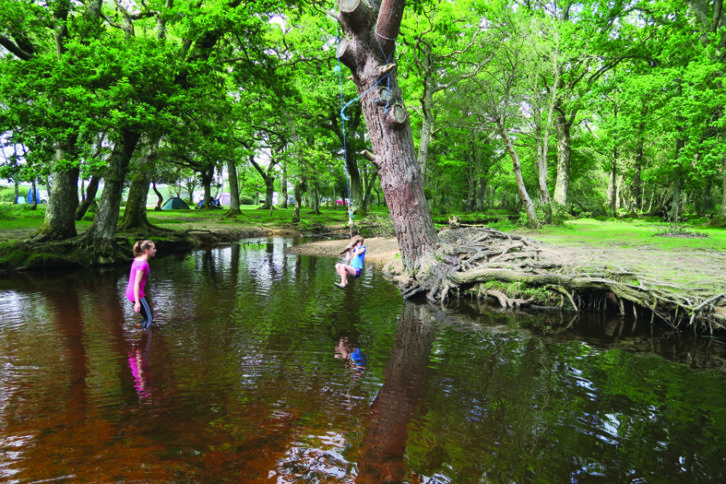
It is also a great way for the children to put down their electronics and just enjoy the environment around them.
Through careful power usage, it is possible to go off-grid for six days or more, particularly during the summer months. So why not give it a go?
If you liked this… READ THESE:
Best caravan gadgets and accessories
Get a quote for a caravan now
How it works
We work with the UK’s best caravan manufacturers to match your requirements with their products. Just tell us what you need from a caravan and we’ll forward your details on to the most suitable ones. They’ll then contact you to see if you want to take things forward.
1. Enter your details below. Simply tell us a bit about what you want from a caravan, and leave some contact details.
2. We search our database. We’ll match your requirements with the services and prices that our partners offer.
3. Partners will contact you. Only the suppliers who match your requirements will reach out to you.
If you’ve enjoyed reading this article, why not get the latest news, reviews and features delivered direct to your door or inbox every month. Take advantage of our brilliant Practical Caravan magazine SUBSCRIBERS’ OFFER and SIGN UP TO OUR NEWSLETTER for regular weekly updates on all things caravan related.
Future Publishing Limited, the publisher of practicalcaravan.com, provides the information in this article in good faith and makes no representation as to its completeness or accuracy. Individuals carrying out the instructions do so at their own risk and must exercise their independent judgement in determining the appropriateness of the advice to their circumstances. Individuals should take appropriate safety precautions and be aware of the risk of electrocution when dealing with electrical products. To the fullest extent permitted by law, neither Future nor its employees or agents shall have any liability in connection with the use of this information. You should check that any van warranty will not be affected before proceeding with DIY projects.
The most crucial factor for any successful off-grid adventure is a high-quality, fully charged leisure battery
